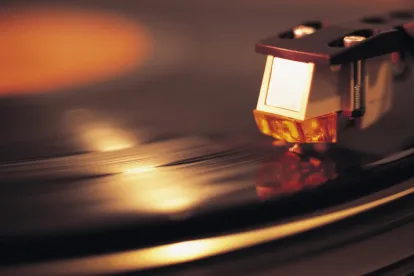Last month, the Second Circuit Court of Appeals affirmed a New York judge’s decision to dismiss federal copyright and state tort law claims alleged against the hip-hop icon, Jay Z, and his affiliated companies. Mahan v. ROC Nation, LLC, et al., No. 15-1238-cv, 2016 U.S. App. Lexis 3182 (2d. Cir. Feb. 24, 2016). The Second Circuit also directed the district court to calculate an award of attorneys’ fees and costs to award to the defendants for litigating what the court called a “baseless” appeal, adding to the more than $253,000 the lower court already awarded to the defendants.
The plaintiff, Chauncey Mahan, apparently worked as an independent contractor (sound engineer) at Jay Z’s record label, Roc-A-Fella Records, LLC from 1999 to 2000. During that time, he allegedly contributed to sound recordings in collaboration with Jay Z and Roc-A-Fella. These recordings, many of which featured Jay Z himself, were released by Roc-A-Fella as part of three hit albums in 1999 and 2000.
Fourteen years later, in the summer of 2014, Mahan sought a judgment pursuant to the federal Copyright Act declaring that he had copyright interests in the individual tracks on which he had worked.
Mahan also brought state law claims against Jay Z and his companies for “initiating a ‘sham’ criminal proceeding” against him. Mahan alleged that the defendants made false statements to the Los Angeles Police Department about Mahan’s purported unlawful possession of unpublished recordings stored on Mahan’s computers and hard drives, which led to their confiscation and seizure by the LAPD. Mahan apparently was not arrested or charged with any crimes related to the LAPD incident.
Last April, U.S. District Judge Lorna G. Schofield for the Southern District of New York dismissed the lawsuit, finding that Mahan’s copyright claims were time-barred. The judge also ruled that Mahan failed to state a claim with regard to the purported false statements between the defendants and the LAPD, because reports to police of suspected criminal activity are protected by an “unqualified privilege” under California law. Id. at *5.
Mahan timely appealed, and the Second Circuit affirmed. On appeal, the Second Circuit upheld the district court’s finding that Mahan’s federal copyright claims were time-barred under the Copyright Act’s three-year statute of limitations. Mahan’s copyright claims began to accrue at least in the year 2000, when Mahan knew or should have known of his alleged injury: Roc-A-Fella applied for copyright registrations for each album in 2000, printed copyright notices on the Albums’ packaging when they were released by 2000, and never paid any royalties to Mahan for the songs. Thus, as of the year 2000, Mahan was on notice that the defendants asserted exclusive rights in the disputed works, and the three-year statute of limitations period had run out by the year 2003. Because Mahan’s claims for co-ownership were not brought until eleven years later, they were time-barred.
In a brief opinion summarily affirming the district court’s ruling, the Second Circuit characterized Mahan’s arguments on appeal as being “as frivolous as those he made” in the proceedings below, and directed the district court to award attorney’s fees to further the objective of the Copyright Act by “deterring such baseless appeals.” The district court already awarded the defendants a total of $253,409.99 in attorney’s fees and costs. As for fees and costs assessed for litigating the appeal, the Second Circuit stated that on remand, the district court has discretion to determine “whether to hold Mahan’s counsel personally liable.” Id. at *6 (emphasis added).
The decision may be taken as a warning for authors and creators of works to promptly bring copyright claims so as to avoid being time-barred under the Copyright Act’s three year statute-of-limitations. It is also a signal to litigators that raising “frivolous” arguments could make you personally liable for an award of attorneys’ fees and costs to the opposing side.



 />i
/>i
